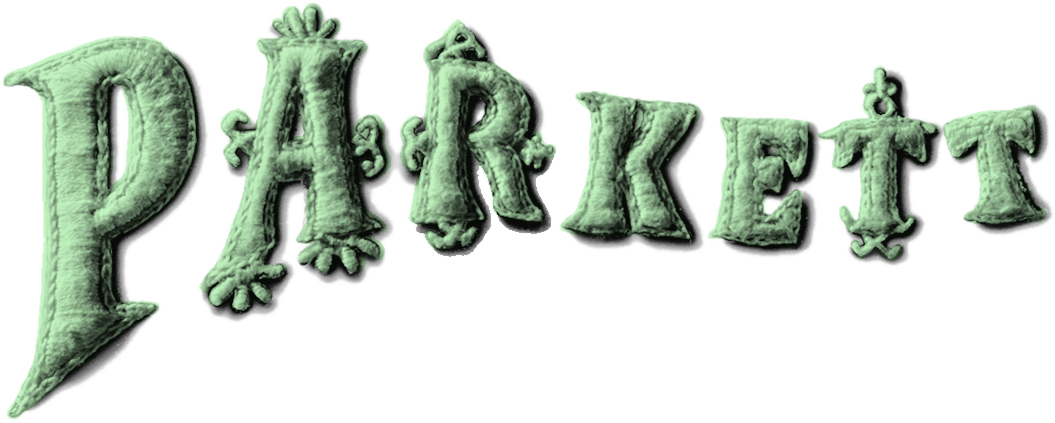 Image 1 of
Image 1 of


Parkett Vol. 75 - 2005 | Kai Althoff, Glenn Brown, Dana Schutz
Kai Althoff
Read a selected text (PDF)
View edition
Glenn Brown
Read a selected text (PDF)
View edition
Dana Schutz
Read a selected text (PDF)
View edition
Insert: Balthasar Burkhard (PDF)
Spine: Carsten Nicolai
Cumulus:
On Bas Jan Ander by Rachel Kent (PDF)
Lyon Biennial Review by Gianfranco Maraniello (PDF)
Miscellaneous:
Grayson Perry by Duncan Fallowell (PDF)
U.S. & Canada
Please place your order through our distributor D.A.P. here.
Kai Althoff
Read a selected text (PDF)
View edition
Glenn Brown
Read a selected text (PDF)
View edition
Dana Schutz
Read a selected text (PDF)
View edition
Insert: Balthasar Burkhard (PDF)
Spine: Carsten Nicolai
Cumulus:
On Bas Jan Ander by Rachel Kent (PDF)
Lyon Biennial Review by Gianfranco Maraniello (PDF)
Miscellaneous:
Grayson Perry by Duncan Fallowell (PDF)
U.S. & Canada
Please place your order through our distributor D.A.P. here.
Kai Althoff
Read a selected text (PDF)
View edition
Glenn Brown
Read a selected text (PDF)
View edition
Dana Schutz
Read a selected text (PDF)
View edition
Insert: Balthasar Burkhard (PDF)
Spine: Carsten Nicolai
Cumulus:
On Bas Jan Ander by Rachel Kent (PDF)
Lyon Biennial Review by Gianfranco Maraniello (PDF)
Miscellaneous:
Grayson Perry by Duncan Fallowell (PDF)
U.S. & Canada
Please place your order through our distributor D.A.P. here.
Browse Selected Texts and more on the Collaboration Artists
Artist Insert
Editorial
Kai Althoff, Glenn Brown, and Dana Schutz invite us with deliberate guile to enter into highly idiosyncratic personal worlds and wide-ranging universes of their own creation. They put their faith in the power of the image—though, as Oliver Koerner von Gustorf observes, there is talk at times of a framework that is not interdisciplinary, but rather antidisciplinary. Glenn Brown and Dana Schutz apply themselves to the “master discipline” of oil painting with bravura but only as a platform for corrosive flights of fancy that transport it into another dimension. Glenn Brown burrows into “the genre of painting” in order to embark on what might be called a subcutaneous journey into his Musée Imaginaire. His steady companion is a great delight in deception of all kinds: travesties of eras past and present, trompe l’oeil in the perfectly flat rendition of pastose brushstrokes, or the gradual liquefaction of false trails. The neo-rococo excrescence on the cover is the quintessential embodiment of all heads that have ever taken up residence on a cover or a canvas, and which now dissolves before our very eyes into a froth of saturated colors. The implications of a treatment of time that borrows from the workings of fairy tales and casually unites centuries, decades, and generations is fleshed out in Veit Loers essay on the work of Kai Althoff. All three collaboration artists share an aspect aptly described in Jan Avgikos’ analysis of the work of Dana Schutz. Her painting is, as she puts it, an “almost encyclopedic archive of nightmarish and sensational imagery” that nonetheless shows a “life-enhancing optimism” in its “fictional post-apocalyptic setting”. While Schutz’s images graphically lay bare existential extremes in the life situations of society’s castaways, Kai Althoff accosts us with other extremes, backdrops of gloom, such as the diabolical dimensions of German history. As in science fiction, Glenn Brown operates on a more concentrated level of materiality in his deliciously uncanny, liquefied world.
The obvious, self-evident presence of the Apocalypse in the work of these three artists is, paradoxically, what makes their projects so exhilaratingly inviting and, indeed, liberating. Also in this volume an Insert by Balthasar Burkhard.
Table of Content
Tea with Grayson Perry by Duncan Fallowell
Between the Book and the Lamp: Four Projects by Rémy Markowitsch by Angelika Affentranger-Kirchrath
Dana Schutz
Welcome to Neverland by Karin Wittneven
Monster Mash by Jan Avgikos
Under Close Observation by Brian Sholis
Kai Althoff
The Ties that Bind by Jordan Kantor
With Bellbottoms to the Underworld by Veit Loers
Super Creeps: Cruising the Work of Kai Althoff by Oliver Koerner von Gustorf
Glenn Brown
He Paints Paint by Jennifer Higgie
New Worlds for Old by Trevor Smith
Master and Minion by Jörg Heiser
Balthasar Burkhard, Insert
Sturtevant: Inappropriate Appropriation by Michael Lobel
Real Cheating: A Conversation with Seth Price, by Daniel Baumann
Pun to Paradox, Bas Jan Ader Revisited, Cumulus from Overseas by Rachel Kent
Experiencing Duration. The 2005 Lyon Biennial, Cumulus from Europe by Gianfranco Maraniello
Goodbye Johnny, Johannes Gachnang, 1939 – 2005 by Rudolf Schmitz




